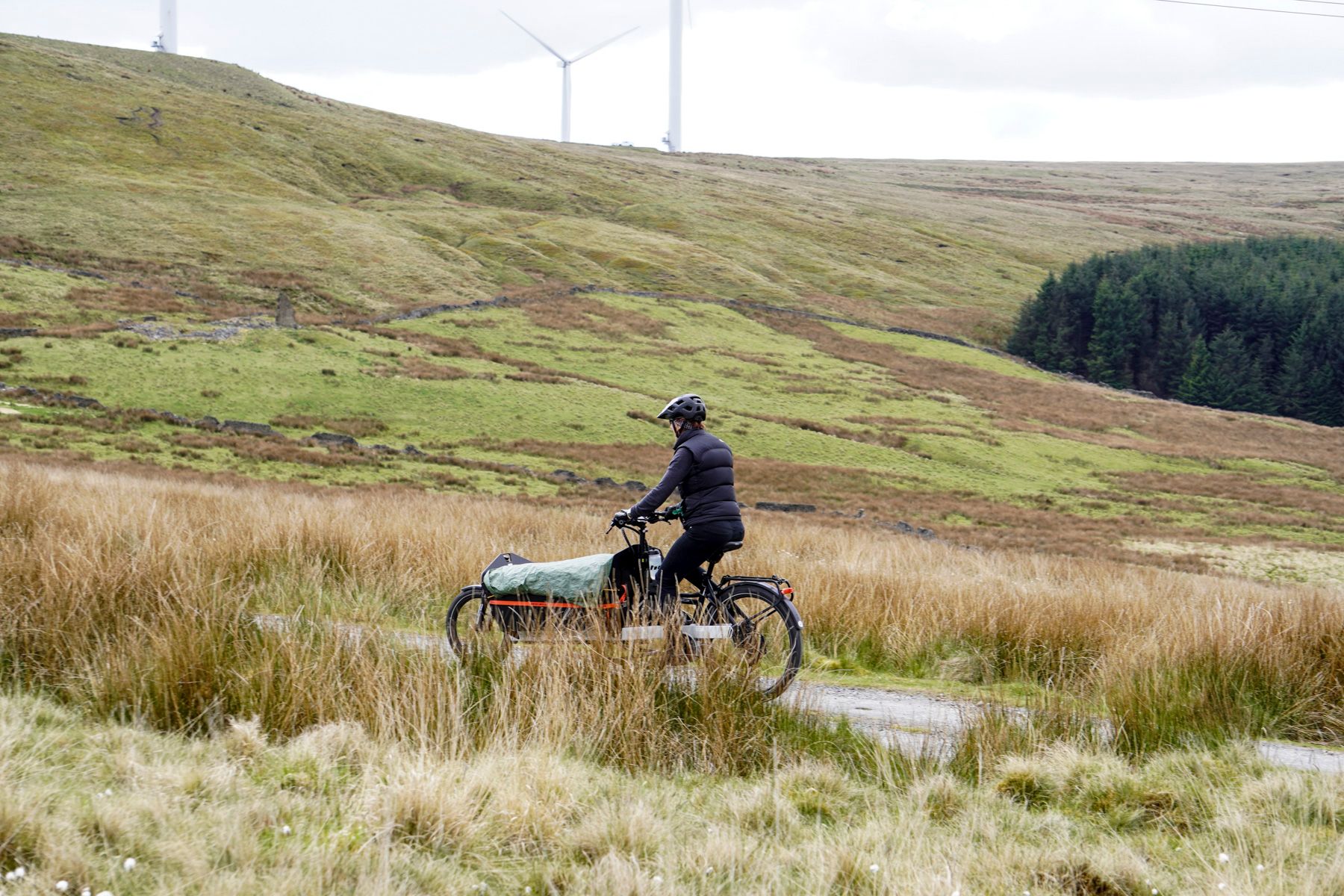Yesterday’s announcement that HS2 is being delayed to reduce costs has grabbed most of the headlines, but buried in the statement was the news that Active Travel funding is also being cut. Understandably, there’s a lot of anger and disappointment about this among those working to improve active travel opportunities.

We remain committed to supporting all forms of transport and have invested over £850m in active travel between 2020/21 and 2022/23. Despite the need to deliver efficiency in all areas of our budget, we will still commit to spend at least a further £100m capital into active travel over the remainder of the spending period, as part of a total of around £3bn investment in active travel over this Parliament, including from City and Region Sustainable Transport settlements and National Highways. We will review these levels as soon as practically possible.
Mark Harper, The Secretary of State for Transport
This statement doesn’t make it clear what the previous spending commitments were, compared to the previous budget, but Sustrans has tweeted that it believes it’s a £200million cut.
⚠ The active travel budget has just been cut by two-thirds ⚠
— Sustrans (@Sustrans) March 10, 2023
It’s heartbreaking to see vital active travel budgets being wiped away in England, at the exact time when they are most essential. It simply doesn’t make sense.👇 pic.twitter.com/IBZjo1jctK
In a joint statement, organisations representing the Walking and Cycling Alliance and Women in Transport, said:
“It is heartbreaking to see vital active travel budgets wiped away in England, at the exact time when they are most essential to UK economic, social and environmental prospects.
“It simply doesn’t make sense to withdraw investment in active travel at this time, particularly as it contributed £36.5 billion to the UK economy in 2021.
“Representing a two-thirds cut to promised capital investment in safe infrastructure for walking, wheeling and cycling, these cuts are a backward move for active travel and will counteract the tremendous progress we’ve seen in recent years. These cuts will leave England lagging far behind other UK nations and London, at a time when we need to be raising the bar everywhere.
“Promised Government targets of 50% of all journeys in English towns and cities being walked or cycled by 2030, and for the UK to be Net Zero by 2050, are made impossible by these cuts.
“People walking, wheeling and cycling take 14.6 million cars off the road, saving 2.5 million tonnes of greenhouse gas emissions every year.
“More than ever, people want and need support to walk, wheel and cycle, and these cuts will impact those that would have benefited most, limiting our choice to travel healthily, cheaply and emissions-free.”
The Walking and Cycling Alliance includes: Bicycle Association; Bikeability; British Cycling: Cycling UK: Living Streets: Ramblers: Sustrans. It has calculated that this means that spending nationally over the next 2 years, outside of London is just £1 per head per year. This compares to £8.90 per head per year in London’s funding settlement. The Home Nations outstrip this funding significantly with Wales funding at £19 per head per year, with Scotland expected be over £50 per head per year. In Ireland they are also in excess of 50 euros per head per year.
In September 2021, the All Party Group for Walking and Cycling made the following recommendation:
Welcome as the £2 billion announced in May 2020 (approximately £7 per person per annum) is, the necessary magnitude of growth in active travel implies a much greater level of spend. The sum required will be determined by the national active-travel target … but £25 per person per year appears to be a reasonable working estimate. This is more than the sector can spend at the moment given its current capacity, which is why we recommend a five-year settlement that “back-loads” funding towards the final years.
All Party Group for Walking and Cycling
CWIS2 Inquiry Report: Reaching Our Active Travel Potential
Their tweet yesterday puts the cut at £380million, rather than Sustrans’ £200m:
NEW: Significant cuts announced for walking and cycling
— APPGCW (@allpartycycling) March 9, 2023
£710m was approved for active travel in the 2021 Spending Review.
£230m has been spent so far. Today’s announcement of £100m for the remaining two years, means a cut of £380m. https://t.co/Wf3bO2kkWC
Either way, yesterday’s spending cut falls far short of their £25 per head estimated need, and means that instead of ‘back-loading’ spending, the government is reducing spending in the later years of the budget – just when there is more capacity in the system to deliver improvements. The All Party Group has issued the following statement:
It is incredibly disappointing that the active travel budget has seen stock such extensive cuts at a time where we need to really make progress on decarbonisation and when people need cheap transport choices.
Joint statement by Selaine Saxby MP and Ruth Cadbury MP, co-chairs of the All Parliamentary Group on Cycling and Walking.
We’ve witnessed the popularity of active travel increase in the capital, but other parts of England will now not benefit from the same quality transport system in London now has three times as much funding per year for active travel than the rest of England combined.
We understand that there are pressures on the public purse but active, travel schemes frequently have much higher benefit. It cost ratios than road building schemes, many of which are still going ahead, despite falling value for money for taxpayers.
No other mode of transport will deliver the same health benefits and actually save the NHS money. If we are serious about decarbonisation and giving people real choices on how they move, active travel needs to be properly and consistently funded.
Active Travel England opened its office in York yesterday. We look forward to working with local authorities nationwide to enable more trips in towns and cities to be walked, wheeled or cycled #activetravel👟🚲🛴🦽 pic.twitter.com/croUtsyDBG
— Active Travel England (@activetraveleng) February 23, 2023
In a move that might have you wondering if the dog knows what its tail is doing, Active Travel England (ATE) only opened its offices a few weeks ago, after around a year of recruitment to roles across the organisation. It is not clear whether the cuts will affect its funding or scope, and ATE would not comment on yesterday’s announcement, referring all queries to the Department for Transport. We’ve asked the DfT the following questions and will update the story when we hear back:
- What will spending in England on active travel be per head following yesterday’s announced cuts?
- What percentage reduction in active travel funding does this equate to?
- Will Active Travel England’s funding be cut?
Update, 4:25pm, Fri 10 March
We’ve just received this response from the Department for Transport:
A DfT spokesperson said: “This Government is committed to supporting active travel, and is investing £3bn up to 2025, even in a tough economic climate where we are having to manage the pressures of inflation.”
Background:
- ATE will continue to play a major role, for instance in the planning system and overseeing the delivery of schemes supported across various funding streams.
- Schemes that are already underway will not be affected; nor will those that will shortly be announced as part of the latest £200m round of funding.
- The Department for Transport is investing £100m for the remainder of the spending period, on top of £850m from the department already provided.
- In total, we’re investing more than £3bn from across Government into active travel up to 2025.
- This includes existing funding for active travel schemes, including through the City Region Sustainable Transport Settlements and National Highways to level up access to active travel across the country.
We’ve pointed out that this doesn’t actually answer the questions we asked… again, we’ll update if we hear back…
The National Audit Office had just announced this week that it was undertaking an audit of the government’s progress on Active Travel. Due to report in summer this year, we might be able to take a guess at what it’s going to say?
In 2017 and 2022, the Department for Transport (DfT) published cycling and walking investment strategies. These set out objectives for increasing rates of active travel in England by 2025 and beyond and funding to support investment in active travel initiatives.
DfT owns active travel policy, but investment in it is expected to address several cross-government priorities, such as the health benefits from increased physical activity. Local authorities lead on implementing active travel schemes as part of their transport responsibilities.
Our study will examine whether government is set up to achieve its ambitions for increased cycling and walking by 2025 and beyond and deliver value for money through these investments.
National Audit Office
At a time when climate change should surely be top of the government’s agenda, this seems like a short sighted move. Campaigners we spoke to were frustrated at the lack of coverage given to the issue so far, with HS2 grabbing the headlines, and they are hoping to raise more awareness of the cuts and their likely impact over the coming days. If this gets you riled, write to your MP, support the Walking and Cycling Alliance members, and try not to weep with frustration.
Update 14 March
Selaine Saxby MP, co-chair of the All Parliamentary Group on Cycling and Walking, asked a parliamentary question on the matter. Does the answer actually answer the question?
It was good to hear from @transportgovuk Minister, @HuwMerriman, his ongoing commitment to decarbonising our transport networks and delivering active travel schemes. @allpartycycling @CEN_HQ pic.twitter.com/ETMqscVeyR
— Selaine Saxby MP (@SelaineSaxby) March 14, 2023






